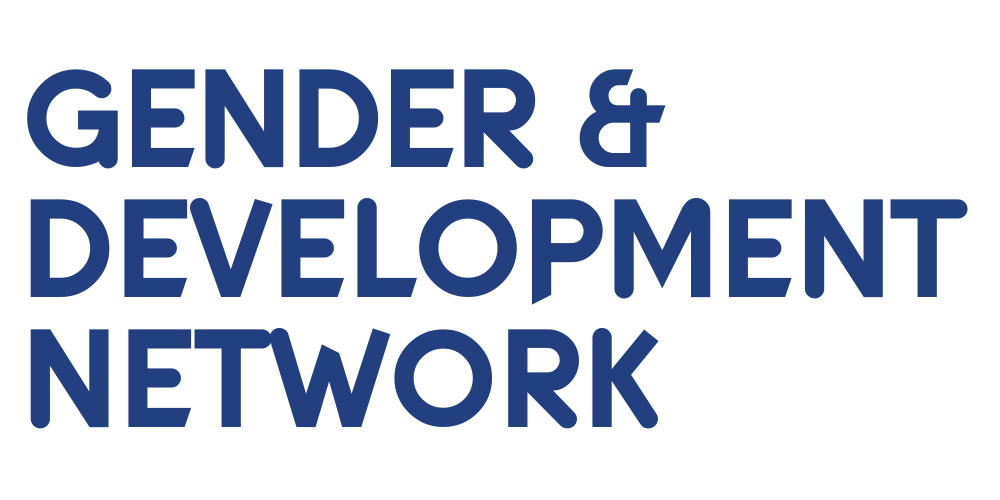GADN's work on feminist economic alternatives
GADN has a major project on macro-level economics: Feminist Reframing of Macro-level Economics (REFRAME). We aim to promote feminist economic alternatives by working with allies to support global feminist movements and influence international decision-makers.
Why GADN prioritises feminist economic alternatives
Decisions taken by national governments and regional and international institutions shape the way that economies are structured, and resources are raised and allocated and are therefore central to the perpetuation of patriarchy, inequality and the abuse of rights. These decisions have a major impact on all our work and aspirations, yet macroeconomics is frequently not recognised as an important area in the promotion of gender equality and women’s rights.
The UK Government has a disproportionate influence on global economic decision-making through its seat on the Boards of the influential World Bank and International Monetary Fund and as a member of the Group of 7 (G7) industrialised countries. Given our location in the UK, GADN considers it our responsibility to hold our government to account, challenging the decisions that it takes on macroeconomic policy.
What GADN does
As part of our aim to play a supportive role in global feminist movements, we share information, knowledge and analysis - both our own and that of others
Our publications aim to support understanding of macro-level economic issues
Our webinars provide a platform for Southern feminists and provoke debate
We aim to shift the way economic policy is framed in international debates, particularly by targeting UK decision-makers. We do this both by creating spaces for feminists from the Global South to be heard and through our own advocacy, reflecting the priorities and proposals of the allies we work with globally.
Covid-19 economic recovery plans have presented a window of opportunity for influence, and GADN worked with feminists in Argentina, India, Uganda and the Philippines to learn from current experiences and propose lessons for the future, and with experts from South Africa to reflect on Pan-African solutions.
Most recently we are targeting the G7, working with others in the W7 to influence the G7 Communiques and propose alternative policies.
The changes we want to see:
Reframing economic models so that wellbeing, sustainability and care are recognised as the prime objective of economic activity
Current economic orthodoxy focuses on increasing economic growth, reframing policy-making will lead to different policy choices prioritising redistribution of wealth, respecting natural resources and acknowledging the role of the care economy.
Recognition of the importance of the care economy, acknowledging the contribution of women’s unpaid and underpaid work
The Covid-19 pandemic further exposed both the centrality of care work across economies and societies, and the way in which women’s underpaid and unpaid work fills the gaps in public provision. The solution lies in part in public investment in gender-transformative care services and in universal social protection. It will also require better pay and conditions for paid care workers – disproportionately women – who have suffered from the undervaluing of care.
Promotion of decent work for women
Around the world women are more likely than men to work in low paid and vulnerable employment in the informal sector, particularly marginalised and migrant women. Governments should promote ‘decent work’ in line with ILO conventions, including protecting the right to collective bargaining and freedom of association.
Increased unconditional resources available to governments in the Global South
The ability of governments in the Global South to adopt feminist economic alternatives is restricted by lack of resources, as a result of unjust global economic rules. Governments in the Global North should redress this injustice through debt cancellation, global taxation, and fair trade and investment agreements. Moreover, constraints on government policy such as austerity conditionality should no longer be attached to aid and debt relief.
Regulation of private investment
Global economic rules tend to protect and promote private foreign investors, ignoring the damage that they can do. Critical understanding of the need to regulate multinational corporations, alongside evidenced-based approaches to the limits of private investment in providing public services, is long overdue.
Decolonisation measures that challenge the continuing unjust legacy of empire
The experience of colonisation shapes global injustices today. Reparations and other decolonisation measures would start to acknowledge and redress past harm and present injustices.
This work is funded with grants from: The Bretton Woods Project, The African Women’s Development and Communication Network (FEMNET), Nawi Afrifem Collective, Wellsprings Philanthropic Foundation, and William and Flora Hewlett Foundation.
